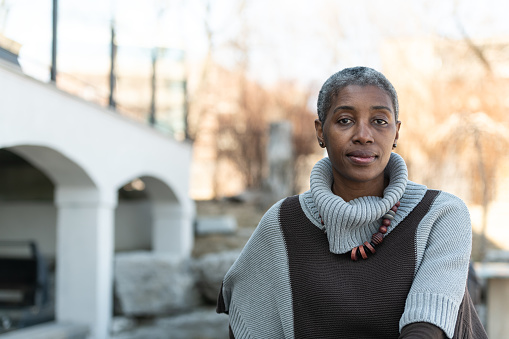Have you experienced the loss of someone close? Grief is the internal feeling you go through when you lose someone. Most often, people associate pain with death, but it could be a relationship break up or a job loss. Prolonged grief could occur if the reaction lasts for more than one year.
Adverse effects could result if triggers surrounding the loss are present. Yet, this depends on mental and physical health before the stages of grief. Also, the relationship between the loved one as well as circumstances that lead to death.
The symptoms of grieving include; social, religious, physical, or emotional. Therefore, coping tips such as; extra rest, proper nutrition, and communication are vital. Also, seeking medical help.
Below are the five stages of grief.
1. Denial

The denial stage of grief helps you reduce the present pain. During this stage, you try to cut emotional pain as you process the reality. More so, at this moment it is hard to believe you have lost someone in your life. Especially if you spoke to them recently.
Also, the reality of the loss has completely shifted. You are reflecting on the moments you shared. Furthermore, you might be wondering how to move on without your loved one. However, it may take some time to accept and adjust.
The process you go through exploring brings a lot of pain. As a result, denial slows the stages of grief. Taking each step at a time helps reduce emotions. Also, try thought disruption by watching a movie, chatting with friends, or even take a walk.
2. Anger
At this phase, you hide the pain and emotions. Hence, anger is a masking effect that develops resentment or bitterness. You may direct these emotions to strangers, family, or friends. What’s more? Guilt may result from anger; hence it intensifies anger.
This stage of grief is an individual process with no schedule nor the ways of how to go about it. For instance, after a breakup, you might have hateful thoughts. I hate you; I hope you will never be happy! Another target would be at the health professionals. Why didn’t the doctor cure the illness?

Make sure you get answers to your questions. For example, if the loved one is at the terminal stage of an illness. Let the doctor take you through the diagnosis, treatment, and outcome. However, ensure you try to understand available options.
Anger shows how much you loved someone. It shows that if possible, you would be willing to do anything for them. While at this stage of grief is pain, it is necessary to go through the healing process.
3. Bargaining
Feeling helpless and vulnerable is common during grief. You will try to find ways to control or prevent an outcome. In this situation, you may think of “if only” and “what if.” If I had bought him gifts, I could have saved the relationship. Probably, If I worked on holidays, the job loss could not have occurred.
At the same time, you may promise God or make deals to get over the grief. Bargaining helps you defend yourself from pain. Also, it helps postpone the hurt, sadness, or confusion. During this stage, you are guilty, and that is why bargaining could be your option.
You also wish that routine life gets restored. Although, you still don’t accept reality. Sometime you could go through one stage and move back. Like, after bargaining, you may develop more anger. However, there is no linear fashion to resolve grief.
4. Depression
At this point, your attention is in the present moments. The grief and emotions get more profound than you can imagine. It feels like depression will last for eternity. However, depression does not mean you have a mental illness. It is a response to lose.
What happens at this stage of grief? You withdraw from most activities and get into intense sadness. You may have no strength to go on with life. Are you in a depressing situation? Losing someone is frustrating; hence it is reasonable to go through depression.
The above phases indeed have more emotions. The Depression phase seems to be quiet but doesn’t make this step easy. It could get messy and overwhelming. In case you get stuck, don’t hesitate to seek help from mental professionals. Finally, when you learn to accept the loss, then the healing process will commence.
5. Acceptance
Acceptance is the next stage of grief, but it does not mean you past the anguish. It does, nonetheless, say you’ve accepted the outcome, and you are in the new terms of your life. The phase may make you feel different. The change often occurs since you had a significant turn in your life.
Let’s take the case of a breakup; you might view it as a healthy choice. In the loss of a loved one, you may say. “I was lucky to have spent my life with her, and her memories will forever remain.” Another example would be a job loss experience: “Well, perhaps I will find a new and better opportunity.”

Coping with stages of grief is a personal experience. Nobody can fit into your shoes to understand your emotions. However, others can comfort you as you go through the grief process. The best favor that can help you overcome is going through the process as it comes.
In conclusion
The key that helps us reduce grief is understanding the pain. Also, knowing that people have different experiences. You may go through the trouble for weeks or even years. The process is personal, and you may have mixed emotions at different times.
Thus, if you get stuck, it is advisable to seek help from a psychologist. Ensure you express your feelings, and they will help you in every stage of grief. No one wakes up with the assurance that they may never experience pain. Life is full of surprises, but it is never the end. Every problem has a solution; don’t give up.


